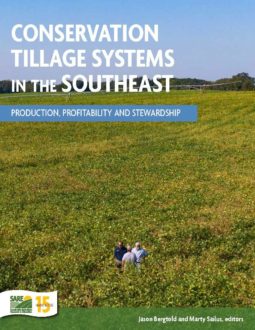
Innovate UK and BBSRC Invest £15.6 Million in Low-Emission Food Production Systems
Innovate UK and the Biotechnology and Biological Sciences Research Council (BBSRC) are set to invest £15.6 million in 32 projects as part of the novel low-emission food production systems competition.
Through their strategic partnership, Innovate UK and BBSRC are supporting innovations designed to drive transformation across the food industry to meet the demands of a growing population while promoting health and sustainability.
Revolutionising Diets and Sustainability
A few of the projects are developing alternative proteins that contribute to a more sustainable and diversified food system.
Alternative proteins, such as plant-based and lab-grown options, place less demand on land and water resources than conventional proteins.
Coupled with the use of novel technologies, they also produce fewer greenhouse gas emissions.
The result is a reduced environmental impact when compared to traditional agriculture production processes.
Enhancing Production Processes
Many of the funded projects focus on enhancing production processes for cultivated meats to generate future products that are not only high in nutrients but also cost-effective.
Some of the projects also hope to unlock the growth potential of the UK insect farming industry, offering a sustainable approach to help decarbonise livestock production.
Growing Up: Vertical Farming Innovations
Several projects will explore vertical farming solutions which offer sustainable and innovative approaches to address challenges related to food production.
The potential benefits include:
- space and resource efficiency
- year-round localised production
- reduced environmental impact
One of the funded projects will develop a small-scale vertical farming model for foods like micro greens and mushrooms.
Another project will create indoor farming systems using advanced technologies to optimise plant health.
Fuelling UK Industry Growth
To further bolster the alternative proteins sector in the UK, BBSRC and Innovate UK have also launched a new funding opportunity to establish an innovation and knowledge centre (IKC).
This initiative aims to provide vital support for research and innovation in the field of alternative proteins.
The investment will serve as a driving force in fostering collaboration within the community to address a range of research and innovation challenges.
From fundamental discovery research and pre-competitive opportunities to proof-of-concept and commercially-focused activities, the IKC will play a pivotal role in advancing the landscape of alternative proteins in the UK.
Diverse and Impactful Innovations
Dr Stella Peace, Executive Director for the Healthy Living and Agriculture Domain at Innovate UK, said:
At Innovate UK, our role is to inspire and invest in transformative changes that will future proof food production and manufacturing.
The projects we are supporting showcase the diverse and impactful innovations emerging in the UK’s agri-food sector.
We are excited to see these develop further and look forward to working with them.
Driving the COP28 Declaration
Professor Guy Poppy, BBSRC Interim Executive Chair and UK Research and Innovation (UKRI) Food Sector Champion, said:
It is timely that just days after the UK, along with over 130 countries, signed the COP28 declaration on sustainable agriculture, resilient food systems and climate action, Innovate UK and BBSRC announce their latest strategic bioscience innovation programme investment.
This latest investment by Innovate UK and BBSRC not only marks a step change in the future of food production while addressing the pressing need for sustainable and nutritious food, but it also illustrates UKRI’s ongoing commitment to harnessing the full power of the UK’s research and innovation system to tackle major global challenges.
The 32 projects receiving this latest funding will help pioneer novel low-emission food production systems that are not just environmentally responsible but also economically viable.
Further Information
This programme supports two UKRI strategic themes:
- securing better health, ageing and wellbeing: improve population health, tackle the health inequalities affecting people and communities, and advance interventions that keep us healthier for longer
- building a green future: accelerate the green economy by supporting research and innovation that unlock solutions essential to achieving net zero in the UK by 2050
Successful Projects
Feasibility Studies
Tools and Technologies for Cultured Meat Production
Project lead: Cell Guidance Systems Limited
Project partners:
- Aston University
- MarraBio Limited
- The University of Manchester
- Unicorn Biotechnologies Ltd
- University of Birmingham
- Zimmer and Peacock Limited
Our project uses complementary technologies from industry and academia to provide solutions for cultivated meat production to deliver low-cost, high nutrient, sustainable protein.
Novel Seaweed Chicken Feed Feasibility (NSCFF)
Project lead: Seaweed Generation Ltd
Project partners:
- Centre for Innovation Excellence in Livestock Ltd
- Microgrow Systems Limited
- Scotland’s Rural College
- University of West London
Understanding the feasibility of tank or sea cultivated dulse (a protein rich red seaweed) as a practical and cost viable alternative chicken feed.
Next-generation Adaptive Evolution Toolkit to Increase Protein Production in Precision Fermentation
SDGs, Targets, and Indicators
-
SDG 2: Zero Hunger
- Target 2.4: By 2030, ensure sustainable food production systems and implement resilient agricultural practices that increase productivity and production, that help maintain ecosystems, that strengthen capacity for adaptation to climate change, extreme weather, drought, flooding and other disasters, and that progressively improve land and soil quality.
- Indicator 2.4.1: Proportion of agricultural area under productive and sustainable agriculture.
- Indicator 2.4.2: Proportion of total agricultural population with ownership or secure rights over agricultural land, measured by sex and type of tenure.
-
SDG 3: Good Health and Well-being
- Target 3.4: By 2030, reduce by one-third premature mortality from non-communicable diseases through prevention and treatment and promote mental health and well-being.
- Indicator 3.4.1: Mortality rate attributed to cardiovascular disease, cancer, diabetes or chronic respiratory disease.
- Indicator 3.4.2: Suicide mortality rate.
-
SDG 7: Affordable and Clean Energy
- Target 7.2: By 2030, increase substantially the share of renewable energy in the global energy mix.
- Indicator 7.2.1: Renewable energy share in the total final energy consumption.
-
SDG 12: Responsible Consumption and Production
- Target 12.2: By 2030, achieve the sustainable management and efficient use of natural resources.
- Indicator 12.2.1: Material footprint, material footprint per capita, and material footprint per GDP.
- Indicator 12.2.2: Domestic material consumption, domestic material consumption per capita, and domestic material consumption per GDP.
-
SDG 13: Climate Action
- Target 13.2: Integrate climate change measures into national policies, strategies and planning.
- Indicator 13.2.1: Number of countries that have communicated the strengthening of institutional, systemic and individual capacity-building to implement adaptation, mitigation and technology transfer, and development actions.
Table: SDGs, Targets, and Indicators
| SDGs | Targets | Indicators |
|---|---|---|
| SDG 2: Zero Hunger | Target 2.4: By 2030, ensure sustainable food production systems and implement resilient agricultural practices that increase productivity and production, that help maintain ecosystems, that strengthen capacity for adaptation to climate change, extreme weather, drought, flooding and other disasters, and that progressively improve land and soil quality. | Indicator 2.4.1: Proportion of agricultural area under productive and sustainable agriculture. Indicator 2.4.2: Proportion of total agricultural population with ownership or secure rights over agricultural land, measured by sex and type of tenure. |
| SDG 3: Good Health and Well-being | Target 3.4: By 2030, reduce by one-third premature mortality from non-communicable diseases through prevention and treatment and promote mental health and well-being. | Indicator 3.4.1: Mortality rate attributed to cardiovascular disease, cancer, diabetes or chronic respiratory disease. Indicator 3.4.2: Suicide mortality rate. |
| SDG 7: Affordable and Clean Energy | Target 7.2: By 2030, increase substantially the share of renewable energy in the global energy mix. | Indicator 7.2.1: Renewable energy share in the total final energy consumption. |
| SDG 12: Responsible Consumption and Production | Target 12.2: By 2030, achieve the sustainable management and efficient use of natural resources. | Indicator 12.2.1: Material footprint, material footprint per capita, and material footprint per GDP. Indicator 12.2.2: Domestic material consumption, domestic material consumption per capita, and domestic material consumption per GDP. |
| SDG 13: Climate Action | Target 13.2: Integrate climate change measures into national policies, strategies and planning. | Indicator 13.2.1: Number of countries that have communicated the strengthening of institutional, systemic and individual capacity-building to implement adaptation, mitigation and technology transfer, and development actions. |
Copyright: Dive into this article, curated with care by SDG Investors Inc. Our advanced AI technology searches through vast amounts of data to spotlight how we are all moving forward with the Sustainable Development Goals. While we own the rights to this content, we invite you to share it to help spread knowledge and spark action on the SDGs.
Fuente: ukri.org

Join us, as fellow seekers of change, on a transformative journey at https://sdgtalks.ai/welcome, where you can become a member and actively contribute to shaping a brighter future.





